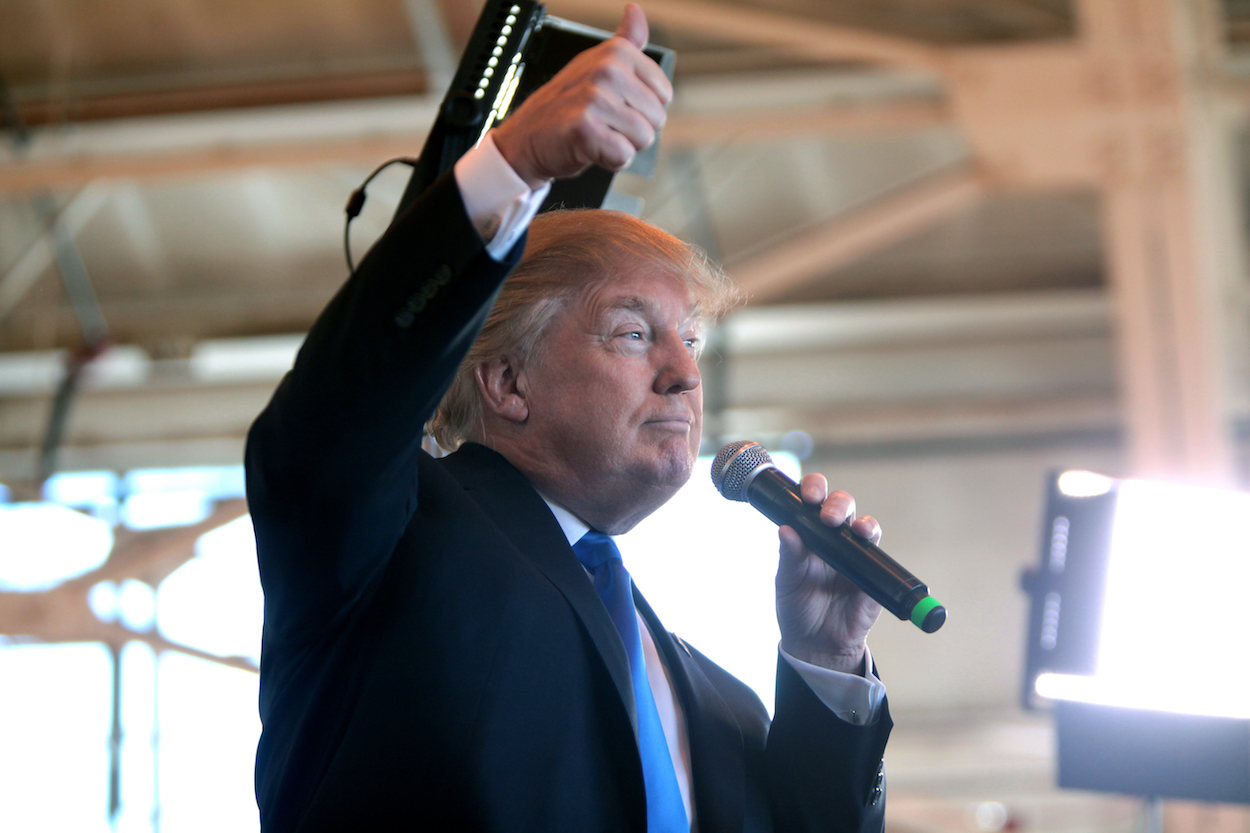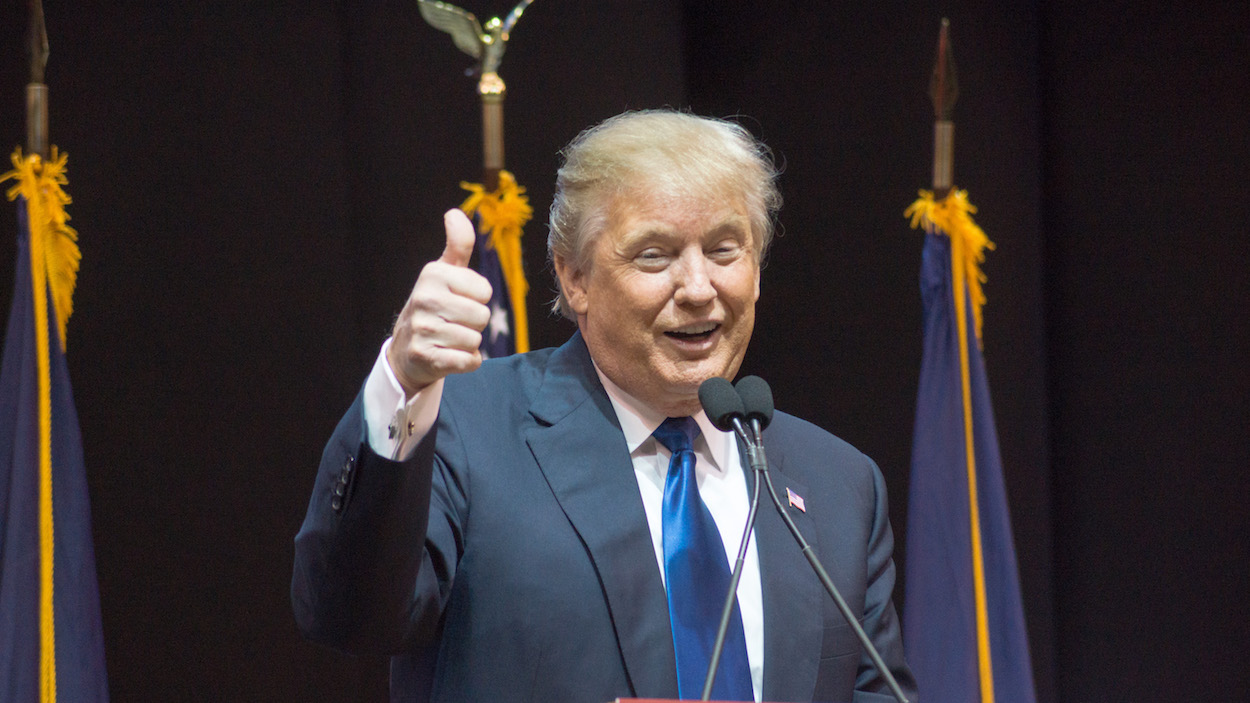by Brian Hioe
語言:
English
Photo Credit: Gage Skidmore/CC
THE DONALD TRUMP campaign was an unstable merger of two elements: the traditional Republican Party establishment and the openly racist, neo-Nazi “Alt-Right”. We can say similarly about Trump’s foreign policy, as an unstable combination of traditional Republican antagonism toward China and a willingness to radically break with American policy precedents.
Namely, there is the possibility that the Trump administration will take a more aggressive stand towards China in line with traditional Republican antagonism towards China on the basis of anti-Communism. This is indicated by that Trump administration officials such as secretary of state nominee Rex Tillerson have suggested that America should declare China a currency manipulator and that the US should move to restrict China’s access to the South China Seas, steps which would be highly provocative of China. In a similarly drastic step that would almost certainly push China over the edge, another Trump advisor, former US ambassador John Bolton, has suggested moving US bases from Okinawa to Taiwan.
Although Trump did not represent an establishment candidate, a Republican administration under a more traditional party candidate very probably would have stepped up American policy aimed at countering China. Such a candidate would have also probably been willing to put aside factional partisanship between Democrats and Republicans in their presidency.
 Donald Trump. Photo credit: Gage Skidmore/CC
Donald Trump. Photo credit: Gage Skidmore/CC
Nevertheless, Trump himself has indicated a radical willingness to break from Republican policy with regard to Taiwan by claiming that everything, including “One China Policy”, will be under negotiation with his administration. Likewise, Trump was elected on the basis of a voter base that is highly antagonistic towards both Democrats and the traditional Republican establishment, illustrating a willingness to break from the views of both.
Trump’s reputed “China guru”, Peter Navarro, is one prominent example. Navarro views rising Chinese power as the greatest threat to America today and urges steps to contain China. Navarro, a traditional Cold Warrior, is antagonistic towards China on anti-Communist grounds, and he places great priority on defending what he sees as democratic allies of America in the Asia Pacific, including Taiwan, South Korea, and Japan.
Nevertheless, several years ago, America negotiating with China using Taiwan as a bargaining chip struck Navarro as something he simply could not believe America would ever do. Navarro seems to see America in a rosy light and very likely genuinely believes that America is committed to the defense of its allies in the name of democracy. Navarro also seems to believe that taking steps to curb Chinese power is a bipartisan issue. Indeed, as Navarro is actually a Democrat, this may be why he is willing to work under a Trump administration.
Of course, Trump has already suggested that he might be willing to use Taiwan as a bargaining chip with China. And one can very easily imagine the far right forces that have arrayed themselves under Trump tearing Navarro to bits when they realize that he is a Democrat, leading to Trump disowning him. Navarro actually seems an odd fit to be Trump’s “China guru” in light of his political views, which seem to draw from Cold War liberalism more than anything else.
It is possible that conventional Republican politicians will take advantage of the fact that Republicans control both Congress and the presidency in order to try and step up American policy over China. But Trump can defy them. Trump has already illustrated his ability to make the world take seriously pronouncements of his by Twitter, even if he does not necessarily have the ability to back up talk with action. Trump has a direct hotline to the world through Twitter. Trump’s ability to influence global politics through Twitter can already be observed in the controversy that followed his phone call with Tsai Ing-Wen, given that much of the controversy was centered around not the call itself but his Tweets about it afterwards.
This is in fact a way to outmaneuver institutional checks or individuals who would have held Trump in check. If Trump decides that a “deal with China” which may involve selling out Taiwan to China is in the best interest of America, announces it on Twitter, and this is warmly received by the American public, few politicians would be able to or willing to openly go against Trump.
 Photo credit: Marc Nozell/CC
Photo credit: Marc Nozell/CC
We do well to keep in mind that Trump seems to have not only no consistent policy whatsoever, but even any real understanding of policy. For example, after promising to gut Obamacare and disavowing any government involvement in healthcare, in line with established Republican political positions, Trump would turn around and promise universal health care to all Americans in seemingly off-the-cuff comments. And so the beat to which Trump dances is different at any given moment.
Hence, just as the political forces that can put him in power can be divided between the radically anti-establishment “Alt-Right” and the more traditional Republican party establishment that may have reluctantly been forced to back him, there are “two faces” to Trump’s foreign policy. The “traditional” face which is drawn from the Republican party establishment and calls for a stronger stance against China in line with traditional Republican anti-Communism and defense of traditional American allies. And the radically “protectionist” face which is more closely aligned with untraditional political elements that have aligned behind Trump. These forces call for a total rethinking of American foreign policy, which may include abandoning Taiwan as a bargaining chip. Trump will very probably oscillate between these two poles, in line with whichever side he favors at any given moment.
Which is it that Taiwan can count on? If Trump has proved willing to rethink policy stances on Taiwan to date, it may be because of Trump’s untraditional political stances to date, but it may be precisely because that Trump is not a traditional Republican candidate that he may be willing to abandon Taiwan altogether. We are set for unpredictable and dangerous times, then, with the Trump presidency ahead of us.

